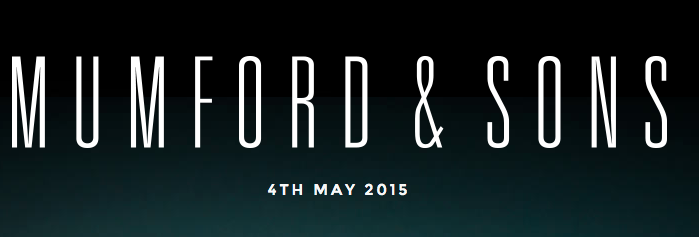What does "Broad-Shouldered Beasts" by Mumford & Sons mean?
"Broad-Shouldered Beasts" Lyrics Meaning
I try to keep my own personality out of my song explanation posts as much as possible, and I tried to stay objective and unbiased for this song, but I love "Broad-Shouldered Beasts" so much that I've got to say something about it. It's the seventh song on Wilder Mind, and other than "Believe," it's the only song on the album that's filled my eyes with tears. It's beautiful and sweet and calming and reassuring. The love demonstrated in this song is the purest I've seen so far in this album, and it's wonderful. You've got to listen to it for yourself.
"Broad-Shouldered Beasts" is a song about the strong empathy and love felt for a person that Mumford cares about deeply. This person at one point chastised Mumford because he "was not free" and "needed peace," but now Mumford is willing to serve self-sacrificially as a scapegoat so that this person can deal with the issues he or she is facing.
Psst! Check out my podcast!
"The Meaning"
The title of the song and the first verse show that "Broad-Shouldered Beasts" is set in New York City, the perfect place for presenting a calming contrast to a frightening and overwhelming life. Mumford develops this by singing that "[b]road-shouldered beasts fill the sky," which, as Friend-from-Brazil Victor pointed out to me yesterday, are "Manhattan's skyscrapers." The next line, "Manhattan beats at the night," shows that the city is alive and moving like a never-ending pulse.
Unfortunately, Mumford's friend (to be referred to as "she" henceforth), according to Friend-from-Brazil Victor "feels the weight of [a] meaningless life," and is "wrapped up in wire," which could be symbolic of the trials and difficulties in life that, like barbed wire, can trip someone up and trap him or her. This entanglement leaves Mumford's friend, "Curled up in fright."
Mumford wants to help her, so he takes her "to the city for the night / To dance under dizzy silver lights." He hopes this will help her to forget her worries and to be happy for a little bit. And it works: "But for a moment, you were wild / With abandon like a child, just a moment." Unfortunately, that "moment" doesn't last and the subject returns to her depressed, frightened state.
In the chorus, Mumford sings to her, "But wasn't it you who said I was not free? / And wasn't it you who said I needed peace?" Several things could have happened here, but this person seems to have been a carefree spirit who had suggested Mumford "lighten up." Unfortunately, her easy-going philosophy seems to have dissolved in the face of real difficulty, leaving her "floored by fear of it all," and with only Mumford's plodding, steady friendship to support her.
After that comes the song's hook: "And it's all right / Take it out on me." Mumford is offering himself as a scapegoat. Apparently, when stressed, this person lashes out at those nearest to her. Mumford is wiling to endure this and assures her that he will not be angry. He values her well-being more than his own comfort.
In the second verse, Mumford enforces the image of the busy city around them and acknowledges that no one else really cares about them. He sings, "These apartment walls are paper thin / And no one is trying to listen in." He goes on to agree that no one wants "to hear our doubts" or "whispered shouts." The people outside "don't care," he empathizes.
After repeating the chorus, Mumford's lyrics brighten as he sings the bridge:
But when you feel the world wrapping 'round your neck
Feel my hand 'round yours
And when you feel the world wrapping 'round your neck
Don't succumb
Mumford knows that difficulties will come but he reminds his friend that he will be there for her. She can be reassured by his presence and his desire for her to not give up a hope that things will indeed get better.
Finally, the uplifting sound of the ultimate repetitions of the hook causes the song to end on a note of hope. The synth, major chords, and rising notes suggest the action of flying above the "Broad-Shouldered Beasts" of the city and above all of the problems that crowd around Mumford's friend, an action that leaves everyone feeling more hopeful and optimistic.
What is postmodern friendship?
Postmoderns love community and empathy. In the "absence" of readily acknowledgeable truth, one of the next best things is knowing that someone's on your side. If others know what you're going through and love you no matter what may turn out to be true (whether about the world or about yourself), then that's enough.
"Broad-Shouldered Beasts" seems to touch on this idea by showing Mumford loving his friend no matter what she does to him. This kind of self-sacrificial love not only speaks of Mumford's Christian background but also of his role as an active member of Generation Y, the Millennial generation.
Like many of his fellow "mid-twenties year olds," "Broad-Shouldered Beasts" shows how he values community and empathy, a desire to really know someone and to show and feel that desire in tangible, loving ways.
What do you think? Do you love this song as much as I do? I think it's fantastic and would love to hear what you think too! Don't forget to like this post if, in fact, you did like it. Thanks for reading!





